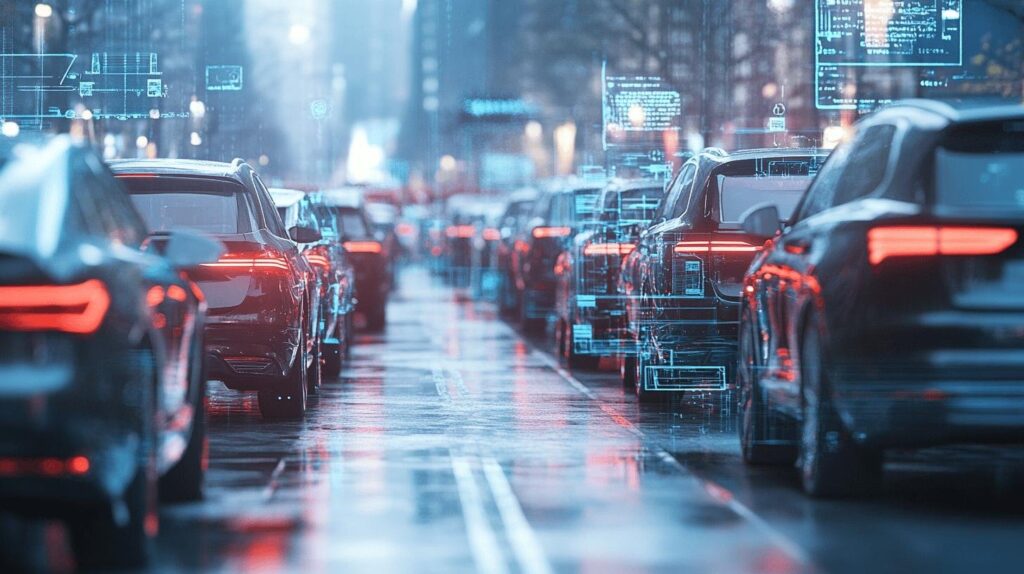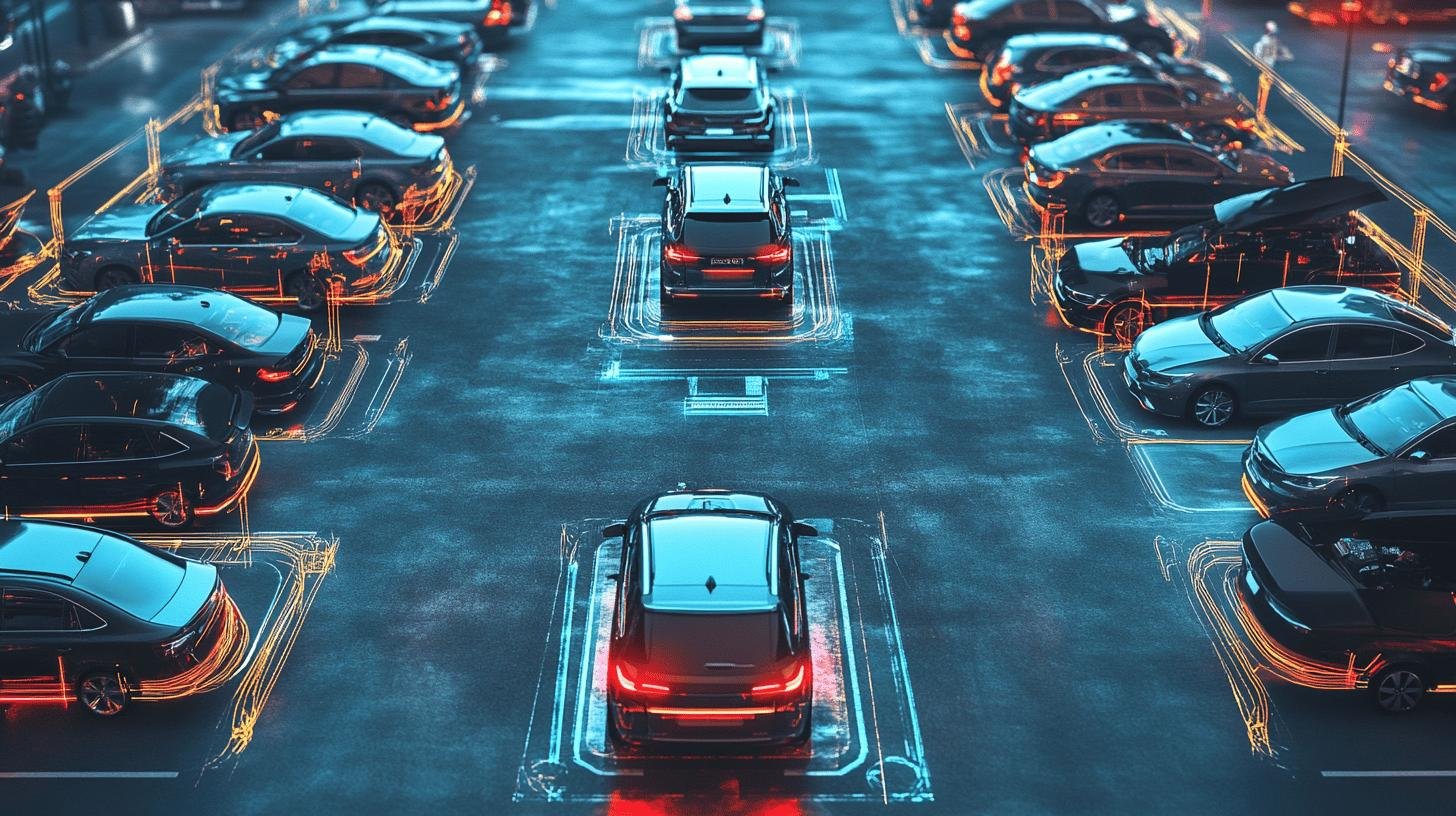Is the rise of parking technology making us a nation of lousy parkers? With 44% of British drivers leaning heavily on tech to park their cars, it’s time to ask if we’ve become too reliant on this convenience. From aiding flawless manoeuvres to perhaps dulling our own skills, parking technology has transformed the driving landscape. This article delves into the implications of our growing dependency on parking aid, weighing its undeniable benefits against the potential erosion of traditional driving skills. Let’s navigate this technological conundrum together.
Examining Our Dependence on Parking Technology
Parking technology has become a ubiquitous presence in the driving experience, offering unparalleled convenience and precision. With innovations such as automatic parallel parking, rear-view cameras, and parking sensors, drivers can navigate tight spaces with ease and confidence. These advancements have transformed what was once a challenging task into a seamless process, allowing for quicker and more efficient parking manoeuvres. As a result, many drivers have come to depend on these technologies for daily use.
However, this convenience has led to an increasing reliance on technology, prompting concerns about the erosion of traditional parking skills. According to a study by Peter Vardy, 44% of British drivers heavily rely on parking technology, suggesting a decline in their ability to park without assistance. This over-reliance can lead to a lack of confidence and proficiency in manual parking, which may become problematic if technological systems fail or are unavailable. The skills that once defined competent driving are at risk of becoming obsolete, raising questions about the long-term implications for drivers’ capabilities.
- 44% of drivers in the UK rely heavily on parking technology.
- Approximately 12 million British drivers use these technologies regularly.
- Parking technology has improved efficiency, with manoeuvres often executed perfectly.
- Traditional parking skills are declining due to technological reliance.
- Over-reliance on tech may impact driver confidence in manual tasks.
Balancing the benefits of parking technology with the preservation of traditional skills is crucial. While technology enhances safety and eases the parking process, human oversight remains essential. Drivers should maintain a level of proficiency in traditional parking methods to ensure they can manage situations where technology is either unavailable or fails. This balanced approach allows drivers to benefit from technological advancements without losing essential skills, ensuring that they remain adaptable and competent in diverse driving scenarios.
Advancements in Parking Technology
Parking technology has evolved significantly since the 1970s, when parking sensors were first introduced to assist visually impaired drivers. These sensors became mainstream in 2003 with Toyota’s reintroduction, paving the way for further technological advancements. Over the decades, the development of parking technology has continuously aimed to enhance safety, efficiency, and convenience for drivers.
Modern parking innovations are heavily influenced by the integration of Artificial Intelligence (AI) and the Internet of Things (IoT). These technologies enable smart parking systems that provide real-time information on available spaces, guiding drivers to the nearest open spot. AI algorithms can predict parking availability based on traffic patterns and historical data, while IoT devices facilitate seamless communication between vehicles and parking infrastructure. These advancements simplify the parking process and reduce the time spent searching for spaces.
The benefits of these innovations are manifold. Drivers experience increased convenience and efficiency as smart systems minimise the frustration associated with finding parking in crowded areas. Urban mobility is also enhanced, with reduced congestion and improved traffic flow resulting from optimised parking management. Additionally, these technologies contribute to environmental sustainability by decreasing fuel consumption and emissions from vehicles idling during parking searches.
The future of parking technology holds even more potential. As these systems continue to evolve, we can expect further integration with autonomous vehicles and enhanced data analytics to improve user experience. Innovations like automated parking facilities and dynamic pricing models will likely become more prevalent, offering tailored solutions to meet the demands of smart cities.
The Impact of Parking Technology on Urban Development

Traditional parking systems often grapple with issues such as congestion, inefficiency, and suboptimal space utilisation. These systems can lead to increased traffic as drivers circle around searching for available spots, contributing to urban congestion and pollution. The limitations of these conventional methods not only inconvenience drivers but also strain urban infrastructure, making effective city planning a challenge.
Smart parking solutions are revolutionising the way cities handle parking by addressing these persistent issues. By employing real-time monitoring and seamless mobile payment applications, these systems significantly enhance parking efficiency. Drivers can receive instant updates on available spaces, reducing the time spent searching and thereby alleviating traffic congestion. Additionally, the integration of smart technology in parking infrastructure allows for better space management, ensuring that parking resources are optimally utilised. This technological shift not only improves the convenience for drivers but also supports more sustainable urban mobility.
Looking ahead, the implications for urban planning and infrastructure design are profound. As cities transition to smart parking systems, planners must consider the integration of these technologies into the broader urban landscape. This includes designing adaptable spaces that can accommodate evolving technologies and potentially integrating parking facilities with public transport networks. The move towards smart city parking solutions demands a forward-thinking approach to urban development, paving the way for more efficient, interconnected, and environmentally friendly urban environments.
Potential Drawbacks and Risks of Parking Technology
Privacy concerns are increasingly significant as smart parking systems collect vast amounts of data about drivers and their vehicles. This information, which may include location, time of parking, and payment details, poses potential risks regarding how it is stored and utilised. Mismanagement of such sensitive data can lead to breaches of privacy and unauthorised access, potentially compromising personal information. The reliance on digital systems for parking solutions necessitates stringent data security measures to protect users from these vulnerabilities.
- System glitches: Technical errors can lead to erroneous parking charges or incorrect space availability, causing inconvenience to drivers.
- Hardware failures: Malfunctioning sensors or cameras may disrupt the system’s ability to monitor and manage parking spaces effectively.
- Software bugs: Issues in system software can result in inaccurate navigation guidance or payment processing failures.
- Network connectivity: Poor connectivity can hinder real-time updates, leading to outdated information on parking availability.
Over-reliance on parking technology presents broader societal risks, including potential job losses in traditional parking management roles. As automated systems replace human attendants, employment opportunities in this sector may decline. Furthermore, the erosion of traditional parking skills among drivers could result in decreased confidence and competence in manual parking scenarios. This dependency on technology may also lead to complacency, where individuals rely on systems without understanding their limitations, potentially affecting overall road safety and driving proficiency.
Balancing Technology and Traditional Skills
Traditional parking skills remain an essential aspect of competent driving. Despite technological advancements, skills like spatial awareness and precise manoeuvring are crucial when technology fails or is unavailable. Maintaining these abilities ensures drivers can handle diverse parking situations confidently, without solely depending on automated systems.
Drivers can preserve their traditional parking skills by regularly practising manual parking techniques even when advanced parking assistance systems are available. Engaging in exercises that involve estimating distances and executing parking without electronic aids can help maintain proficiency. By occasionally opting for manual parking, drivers keep these essential skills sharp, ensuring they remain adept in various scenarios.
Human oversight is pivotal in the adoption of parking technology, as it ensures a balanced approach between reliance on technology and retention of traditional skills. While advanced systems offer convenience and precision, drivers must remain vigilant and capable of taking control when necessary. A balanced approach involves recognising the limitations of technology, understanding its role as an aid rather than a substitute, and ensuring drivers are prepared to intervene when technology falls short. This perspective fosters a harmonious integration of technology and skill, promoting safety and competence on the road.
Final Words
In exploring our reliance on parking technology, it is clear that while these innovations offer unparalleled convenience and efficiency, they may also erode traditional parking skills. Balancing the benefits of advancements, such as AI and IoT, in parking systems with preserving human skills is crucial.
Urban development increasingly relies on smart solutions to alleviate congestion and improve efficiency, illustrating both the necessity and the potential pitfalls of technological over-reliance.
Concerns surrounding privacy and technical malfunctions underline the need for human oversight in adopting these technologies. Embracing a balanced approach ensures that as technology advances, we do not lose the invaluable skills that define adept drivers.
FAQ
What is the current reliance on parking technology among drivers?
A study by Peter Vardy shows that 44% of British drivers, or about 12 million, heavily rely on parking technology. This suggests a significant over-reliance and a potential decline in traditional parking skills.
How has parking technology evolved over the years?
Parking sensors began in the 1970s for aiding the visually impaired and became popular with Toyota’s reintroduction in 2003. Today’s innovations involve AI and IoT, transforming parking experiences by simplifying processes.
What are the benefits of modern parking technology?
Modern advancements like AI and IoT provide benefits such as improved parking efficiency, reduced congestion, enhanced urban mobility, and streamlined processes through smart parking solutions.
How does parking technology impact urban development?
Traditional systems face issues like congestion and poor space utilisation. Smart parking systems alleviate these by enhancing efficiency, offering real-time monitoring, and streamlining payments, shaping future urban plans.
What are the potential drawbacks and risks associated with parking technology?
Parking technology raises privacy concerns due to data collection and storage. Furthermore, technical malfunctions can cause disruptions, and over-dependence might affect job availability and diminish traditional skills.

